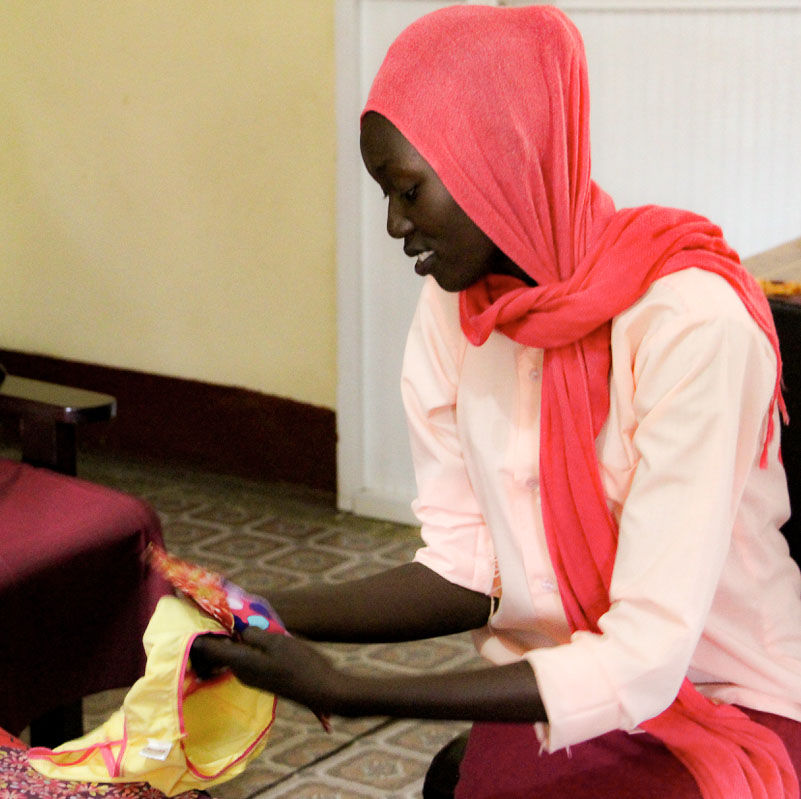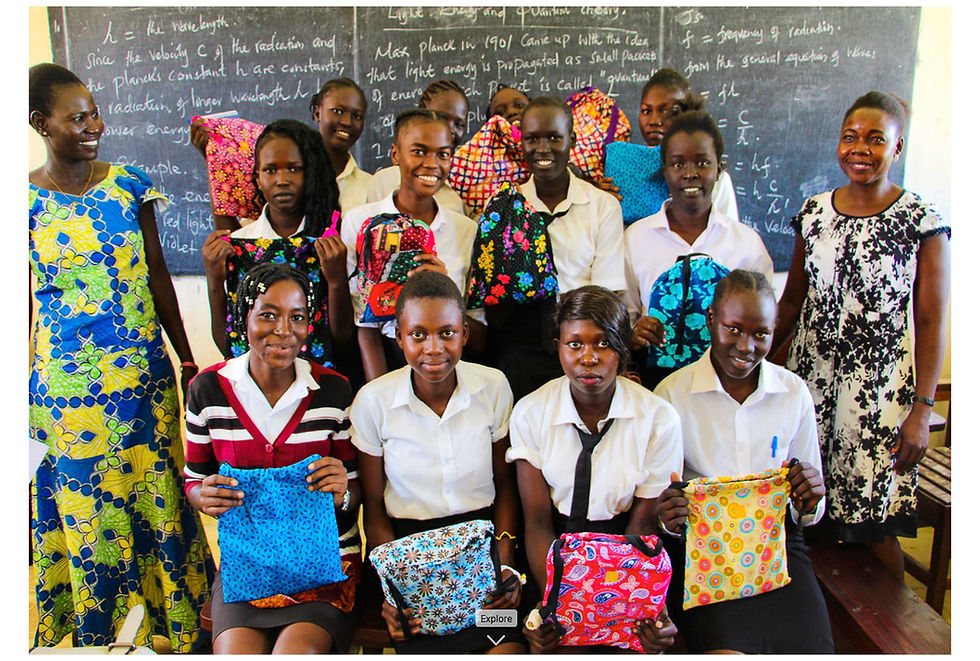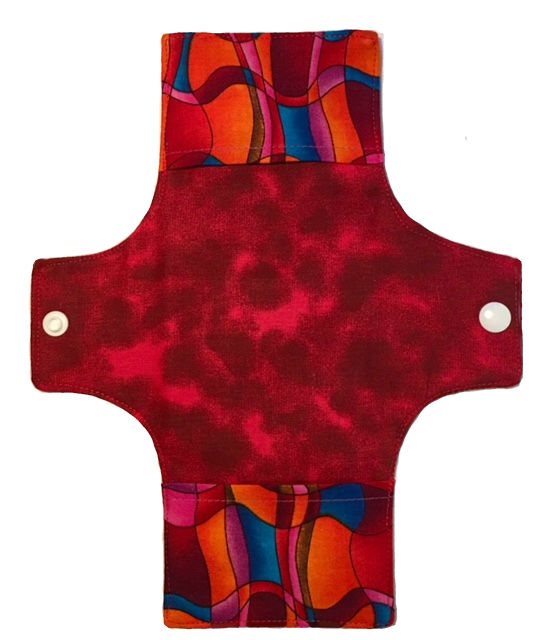Days for Girls=Dignity for Girls
It’s the moment that South Sudanese school girls dread – coming on their period while at school. A schoolgirl from Wau told us, “I feel uncomfortable because my blood will be coming out and I will want to get out of class… it will distract my lesson so it’s better to stay at home." Due to a lack of resources, along with fierce stigma, girls in South Sudan are often forced to stay home during their period, which can lead them to miss 10-20% of school days. UNICEF estimates that 1 out of every 10 African girls will miss school due to their periods – this is likely to be higher in South Sudan.

In some cases, girls simply don’t have access to sanitary products. Even if the products are there, at 200 South Sudanese Pounds per pack, they are unattainable for families with little or no income. There is also a deeply-entrenched stigma surrounding menstruation; it is a hidden topic and safe and hygienic practices are seldom discussed, even behind closed doors. Typically, girls use various materials including pieces of mattresses, leaves, tree trunks; other girls dig holes in the ground to collect their menstrual blood while others use herbs to reduce blood flow. These methods are ineffective, uncomfortable, and can lead to infection. After speaking to schoolgirls in Wau, Wau State, the main reasons for missing school during menstruation were cited as a lack of water in school, same sex toilets for boys and girls, and teasing from boys.
“Whenever my period comes, I prefer to go home because in my school we share toilets with boys and I cannot feel comfortable.”

“When I know my menstruation is coming, I have to miss School for 3 or 4 days because my school has no water it takes to be safe during menstruation. No clean toilets [or] water, and moreover, when boys know you smell they tease you.”
“I do feel ashamed to tell a male teacher that I have menstruation, even a female teacher. Slowly I realized not to be afraid from female teachers because they were girls too like me when they were in the school and [they] experienced the same...”
One solution to the problem of missing school is to provide

reusable sanitary pads to girls. We were recently donated 50 menstrual hygiene kits from Days for Girls – an organisation that increases access to menstrual care and education, and has reached over 1 million girls worldwide with hygiene kits.
The Days for Girls Kits don't look like traditional pads...and there's a reason for that. “The bright colors camouflage staining. The absorbent liners unfold to look like a washcloth, which allows women to wash and dry them outside in the sun without causing embarrassment. All of these design choices add up to a lasting, easy-to-care-for solution.” If maintained properly, DfG Kits will last up to 3 years – saving girls in South Sudan approximately $75 – the cost of buying two packets of Always per month.
We distributed these Kits to four schools in Juba in partnership with Crown the Woman – a South Sudanese organization that promotes “meaningful gender equality and equity as well as the need to recognize, appreciate, strengthen and empower women”. A Crown the Woman representative demonstrated the proper use of the kits and engaged the girls in discussion around menstrual hygiene. Out of the 50 dFg Kits distributed, only 5 girls had previously used reusable sanitary pads. Many girls complained about the cost of disposable sanitary pads, as well as the discomfort they experience using them.
The girls were delighted with the packs – highlighting that the discrete and beautiful design will ensure that they stay in school during menstruation, as well as help them to save a significant amount of money which can now go towards learning materials. We hope to receive another 50 DfG Kits in the coming weeks and to get these down to more remote areas, where there is no supply of disposable sanitary pads. We are delighted to have had the opportunity to partner with Days for Girls and Crown the Woman to tackle the issue of period poverty. As a program, we mostly tackle the financial and cultural barriers to girls' education, but there's a myriad of challenges that girls in South Sudan face. There is still a long way to go in the area of menstrual hygiene and we hope to be able to do more on this issue in the future.
This article was originally posted on the Girls Education South Sudan blog, an organization that works to improve access to education, especially for girls in South
Sudan.
.png)


































